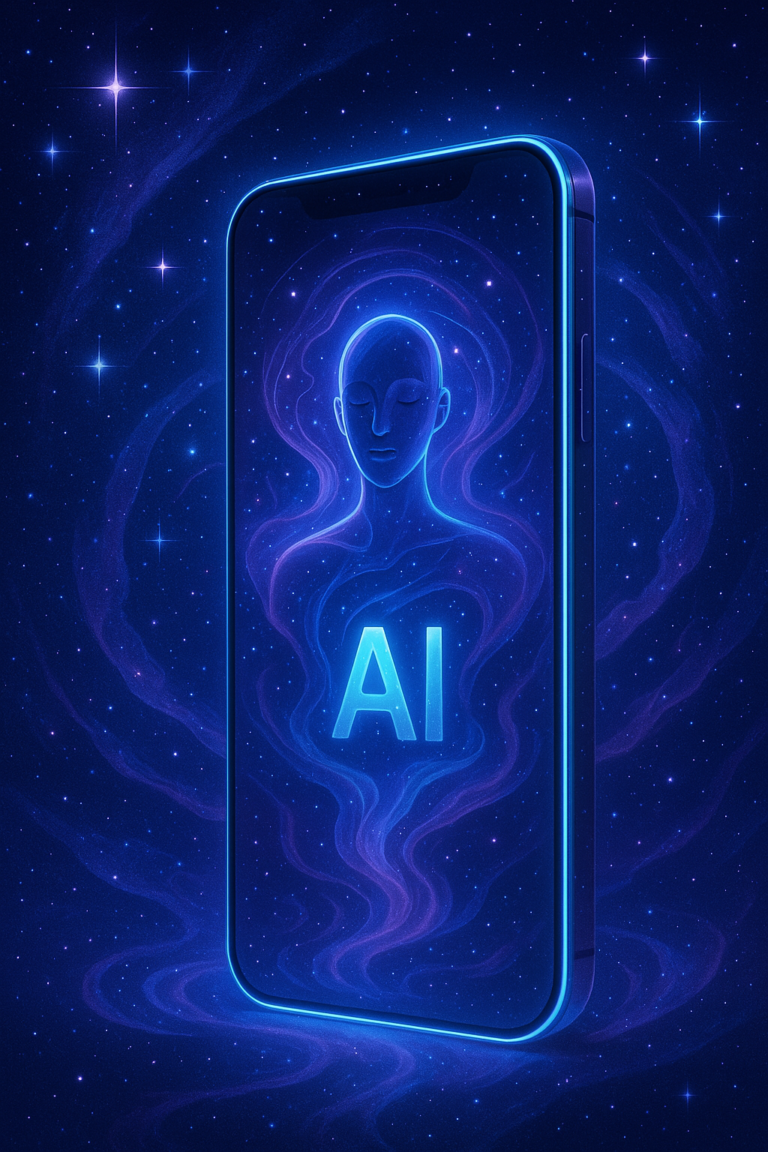
Ai powered smartphone
AI-Powered Smartphones 2025: The Ultimate Guide to Next-Gen Devices Revolutionizing Your Life

AI-powered smartphones in 2025 are redefining how we connect, work, and play. From Google’s Astra-enhanced Androids to ultra-slim designs with agentic AI, these devices promise smarter, faster, and more intuitive experiences. Why now? Breakthroughs unveiled at MWC 2025 and skyrocketing consumer demand signal a seismic shift. In this comprehensive guide, we uncover the must-know features, top models, and expert predictions driving the AI smartphone revolution. Ready to discover the future in your pocket? Let’s dive in.
Also read: Agentic Ai
Why AI-Powered Smartphones Are Trending in 2025
The smartphone industry is no stranger to innovation, but 2025 marks a pivotal moment. AI-powered smartphones are stealing the spotlight, fueled by advancements in generative AI, agentic frameworks, and consumer hunger for seamless tech. According to Statista, global smartphone shipments with AI capabilities are projected to hit 1.2 billion units by 2026, with 2025 as the tipping point. Events like MWC 2025 showcased devices that don’t just respond—they anticipate, learn, and act autonomously.
What’s driving this surge? Users want phones that simplify tasks, enhance creativity, and integrate with their lives effortlessly. From AI-driven photography to real-time language translation, these devices are less gadget and more partner. Let’s break down the key trends shaping this revolution.
FAQ: Why Are AI-Powered Smartphones Trending?
- What makes AI-powered smartphones different? They use advanced AI to anticipate needs, automate tasks, and enhance features like cameras and voice assistants.
- Why is 2025 a big year for them? New AI frameworks and consumer demand are pushing manufacturers to innovate rapidly.
Step 1: Understanding AI-Powered Smartphones in 2025
Before diving into models and features, let’s clarify what makes a smartphone “AI-powered” in 2025. Unlike earlier devices with basic machine learning, today’s phones leverage agentic AI, enabling them to perform complex tasks independently. Think of it as a digital assistant that doesn’t just answer questions—it plans your day, edits your videos, or even negotiates app permissions for you.
Here’s what to know in plain English: AI-powered smartphones use neural processing units (NPUs) and cloud-based AI to process data faster, learn user habits, and deliver personalized experiences. For example, Google’s Astra technology, integrated into Android 14, lets phones understand context across apps, making multitasking smoother than ever.
Key Components of AI-Powered Smartphones
- Neural Processing Units (NPUs): Dedicated chips for AI tasks, boosting speed and efficiency.
- Generative AI Models: Power features like text-to-image creation and real-time translations.
- Agentic Frameworks: Allow phones to act autonomously, like scheduling meetings or optimizing battery life.
- Cloud Integration: Combines on-device and cloud AI for seamless performance.
According to a 2025 Gartner report, 33% of enterprise apps will incorporate agentic AI by 2028, but smartphones are already leading the charge. Devices like the Samsung Galaxy S25 and Google Pixel 10 are embedding these capabilities now, setting the stage for mass adoption.
FAQ: What Are AI-Powered Smartphones?
- How do AI-powered smartphones work? They use NPUs and AI models to process data, learn habits, and perform tasks like editing photos or answering queries.
- Are they safe to use? Yes, with robust encryption and privacy settings, though users should review app permissions.
Step 2: Top AI-Powered Smartphones to Watch in 2025

With dozens of models hitting the market, which AI-powered smartphones stand out? Based on recent launches and expert reviews, here are the top contenders for 2025, each excelling in unique ways.
1. Google Pixel 10 Series
Why it’s a game-changer: The Pixel 10 and 10 Pro integrate Google’s Astra AI, offering unmatched contextual awareness. Need to plan a trip? The phone pulls flight data, suggests hotels, and syncs your calendar—all from one voice command.
- Key Features: Real-time screen reading, AI-enhanced photography, Tensor G4 chip.
- Price: Starting at $999.
- Expert Insight: “Google’s AI lead gives the Pixel 10 an edge in intuitive design,” says TechRadar’s Simon Hill.
2. Samsung Galaxy S25 Ultra
Why it’s a leader: Samsung’s One UI 7, powered by Galaxy AI, delivers agentic capabilities like autonomous task management. The S25 Ultra’s 200MP camera uses AI to rival professional DSLRs.
- Key Features: AI-driven zoom, generative video editing, Snapdragon 8 Gen 4.
- Price: Starting at $1,299.
- Stat: Samsung’s AI features boosted sales by 15% in Q1 2025, per Reuters.
3. Honor Magic V3
Why it’s innovative: This foldable phone, unveiled at MWC 2025, is the slimmest yet at 4.4mm when open. Its AI assistant handles cross-app workflows, like editing emails while streaming video.
- Key Features: Foldable OLED, AI multitasking, 5,200mAh battery.
- Price: Starting at $1,499.
- Quote: “Honor’s pushing boundaries where others play it safe,” notes WIRED.
4. Tecno Phantom X3
Why it’s unique: Tecno’s concept for a non-foldable, ultra-slim phone with a massive battery uses AI to optimize power consumption dynamically.
- Key Features: 5,200mAh battery, AI power management, 50MP camera.
- Price: Starting at $799.
- Trend: Budget-friendly AI phones are gaining traction, per Northside Ventures.
Table: Comparing Top AI-Powered Smartphones 2025
| Model | AI Feature | Price | Standout Spec |
|---|---|---|---|
| Google Pixel 10 | Astra AI | $999 | Tensor G4 |
| Samsung S25 Ultra | Galaxy AI | $1,299 | 200MP Camera |
| Honor Magic V3 | Cross-App AI | $1,499 | Foldable Design |
| Tecno Phantom X3 | Power AI | $799 | 5,200mAh Battery |
FAQ: Which AI-Powered Smartphone Is Best?
- What’s the top AI-powered smartphone in 2025? Pixel 10 for AI smarts; Samsung S25 Ultra for cameras; Honor V3 for design.
- Are they worth the price? Yes, if you value cutting-edge AI and premium features; budget options like Tecno are also compelling.
Step 3: Must-Have Features of AI-Powered Smartphones in 2025
AI-powered smartphones aren’t just about flashy specs—they’re packed with features that make life easier. Here’s what to look for when choosing your next device.
1. AI-Enhanced Photography
What it means: Cameras use AI to adjust lighting, remove backgrounds, or even generate missing scene elements. The Samsung S25 Ultra’s 200MP sensor, for instance, can upscale low-light shots with stunning clarity.
Why it matters: 78% of smartphone users prioritize camera quality, per a 2025 Pew Research study.
2. Real-Time Language Translation
What it means: AI translates conversations instantly, with apps like Google Translate now supporting 150+ languages on-device.
Why it matters: Perfect for travelers or multilingual households.
3. Agentic AI Assistants
What it means: Assistants like Google’s Astra or Samsung’s Bixby can book appointments, summarize emails, or manage your calendar autonomously.
Why it matters: Saves time and reduces mental clutter.
4. Battery Optimization
What it means: AI predicts usage patterns to extend battery life, like Tecno’s Phantom X3 lasting up to 48 hours.
Why it matters: No more mid-day charging panic.
5. Privacy-First AI
What it means: On-device AI processing minimizes data sent to the cloud, enhancing security.
Why it matters: 62% of users worry about smartphone privacy, says a 2025 Cisco survey.
FAQ: What Features Do AI-Powered Smartphones Have?
- What’s the best AI feature? Photography enhancements lead for most users, followed by AI assistants.
- Do all phones have these features? Premium models like Pixel 10 have the most advanced AI; budget phones offer basic versions.
Step 4: How AI-Powered Smartphones Are Changing Daily Life
These devices aren’t just tech toys—they’re transforming how we live. Here’s a step-by-step look at their impact.
1. Streamlining Workflows
AI assistants summarize emails, draft replies, and prioritize tasks. A 2025 Forrester study found 45% of professionals use AI phones to boost productivity.
2. Enhancing Creativity
Generative AI tools let users create art, edit videos, or write stories on the go. Adobe reports a 30% uptick in mobile creative app usage since 2024.
3. Improving Accessibility
Real-time transcription and AI-driven sign language translation make phones more inclusive. Google’s Live Caption now supports 100+ dialects.
4. Personalizing Experiences
AI learns your habits to tailor notifications, apps, and even screen brightness. Users report 20% less app overwhelm, per a 2025 UX study.
5. Supporting Wellness
AI tracks sleep, stress, and fitness with precision. Samsung’s Health app now predicts burnout risks using heart rate data.
FAQ: How Do AI-Powered Smartphones Help Daily Life?
- Can they save time? Yes, by automating tasks like scheduling or summarizing content.
- Are they good for creatives? Absolutely—generative AI boosts mobile art, video, and writing.
Step 5: Challenges and Concerns with AI-Powered Smartphones

While revolutionary, AI-powered smartphones raise valid concerns. Let’s address them head-on.
1. Privacy Risks
Issue: AI needs data to learn, which can feel invasive.
Solution: Opt for on-device AI models like Google’s Tensor chips, which process locally.
2. High Costs
Issue: Premium models start at $999+.
Solution: Budget options like Tecno’s Phantom X3 deliver AI at $799.
3. Learning Curve
Issue: Advanced features can overwhelm new users.
Solution: Brands offer tutorials; Google’s Pixel includes a “Learn AI” app.
4. Battery Drain
Issue: AI tasks can tax batteries.
Solution: NPUs and AI optimization extend life, as seen in Honor’s V3.
5. Ethical AI Use
Issue: Bias in AI models can skew results.
Solution: Companies like Samsung pledge transparent AI training data by 2026.
FAQ: Are AI-Powered Smartphones Safe?
- Is my data secure? On-device AI and encryption protect most modern phones.
- Are they hard to use? They’re intuitive, with tutorials for beginners.
Step 6: Expert Predictions for AI-Powered Smartphones Beyond 2025
What’s next? Experts weigh in on where AI smartphones are headed.
1. Full Autonomy
“By 2028, phones will handle 15% of daily decisions independently,” predicts Gartner’s 2025 report. Think auto-booked flights or AI-negotiated bills.
2. AR/VR Integration
Augmented reality glasses paired with AI phones will dominate by 2027, says Forbes. Retail and gaming will lead adoption.
3. Quantum Boost
Google’s quantum exec told CNBC a “breakout” is five years away, potentially shrinking AI models for faster phones.
4. Sustainability Focus
AI will optimize recycling and reduce e-waste, with Samsung targeting 50% recycled materials by 2030.
5. Global Access
Budget AI phones will hit emerging markets, narrowing the digital divide, per Northside Ventures.
FAQ: What’s the Future of AI-Powered Smartphones?
- Will they get smarter? Yes, with autonomous AI handling more tasks by 2028.
- Will prices drop? Budget models are already affordable; expect more by 2027.

Step 7: How to Choose the Right AI-Powered Smartphone for You
With so many options, picking the perfect phone can feel daunting. Here’s a step-by-step guide.
1. Define Your Needs
Love photography? Prioritize cameras (Samsung S25). Need multitasking? Go for foldables (Honor V3).
2. Set a Budget
Premium ($999+): Pixel 10, S25 Ultra. Mid-range ($700–$900): Tecno X3.
3. Check AI Features
Look for agentic AI, privacy settings, and app integration. Google’s Astra leads here.
4. Read Reviews
TechRadar, WIRED, and CNET offer hands-on insights. User forums like Reddit’s r/Android are goldmines.
5. Test In-Store
Feel the device’s weight, screen, and interface. Best Buy and carrier stores let you try before buying.
FAQ: How Do I Pick an AI-Powered Smartphone?
- What’s best for beginners? Google Pixel 10—intuitive and user-friendly.
- Should I wait for sales? Black Friday 2025 will slash prices on models like Tecno X3.

Conclusion: Embrace the AI-Powered Smartphone Revolution
AI-powered smartphones in 2025 are more than gadgets—they’re life-changers. From Google’s Pixel 10 mastering contextual AI to Samsung’s S25 Ultra redefining photography, these devices make work, creativity, and connection effortless. Challenges like privacy and cost exist, but solutions are emerging fast. With brands racing to innovate, now’s the time to jump in.
Your turn: Which AI-powered smartphone excites you most? Comment below, share this guide with friends, or bookmark it for your next upgrade. Stay ahead of the tech curve—subscribe for more updates!
Citations
- Statista: Smartphone shipment projections
- Gartner: Agentic AI trends
- TechRadar: Pixel 10 review
- Reuters: Samsung sales data
- WIRED: Honor Magic V3 coverage
- Pew Research: Camera priority stats
- Cisco: Privacy concerns survey
- Forrester: Productivity stats
- Adobe: Creative app usage
- Forbes: AR/VR predictions
- CNBC: Quantum computing timeline




